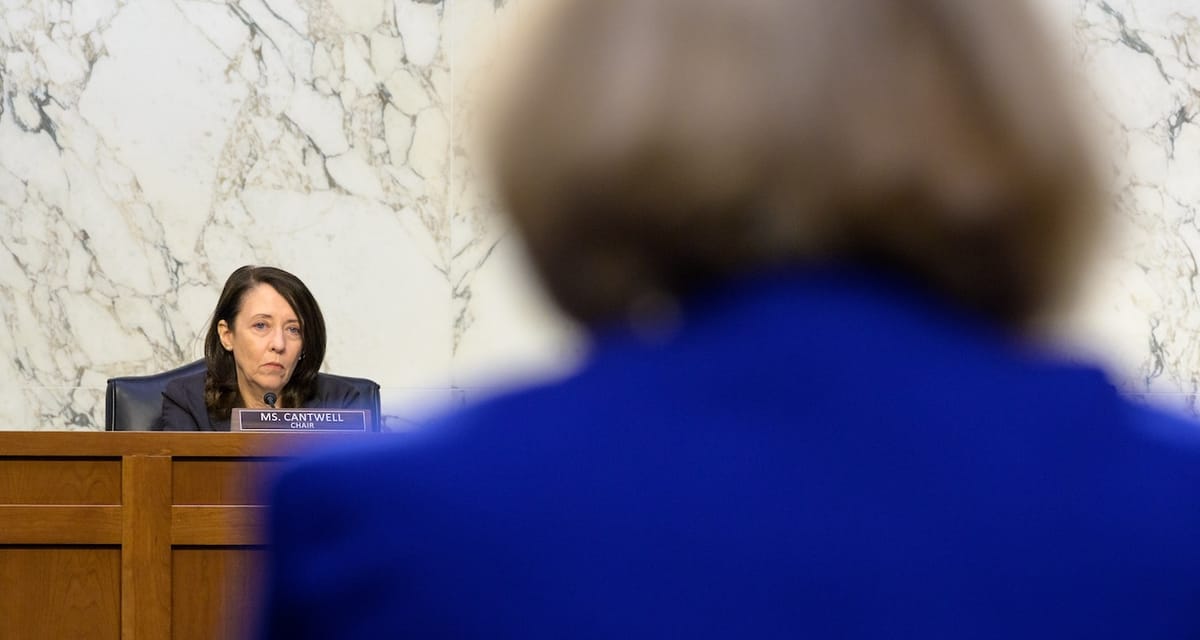
ACP
Departments of Commerce and Defense requested changes Tuesday night.

 Photo of Senate Commerce Committee Chair Maria Cantwell, D-Wash., in 2021 from NASA
Photo of Senate Commerce Committee Chair Maria Cantwell, D-Wash., in 2021 from NASA
WASHINGTON, June 12, 2024 – The Senate Commerce Committee postponed for the third time a markup session on legislation that would fund the Affordable Connectivity Program.
The Spectrum and National Security Act, originally set to be marked up on Wednesday, is now set to be considered on June 18.
The bill would reinstate the Federal Communications Commission’s authority to auction off spectrum bands for five years.
It would also allow the FCC to take out $7 billion in loans from the Treasury to fund the expired ACP and borrow another $3.08 billion to shore up the rip and replace program, with proceeds from future spectrum auctions tapped to pay back the loans.
A committee spokesperson said the delay came after the heads of the Commerce Department and Defense Department and the Joint Chiefs of Staff requested edits to the current language in exchange for their support. The new date will give members time to review updated language.
Screenshot of statement from Senate Commerce Committee
The requested changes deal with language around dynamic spectrum sharing, systems that allow multiple users to occupy the same spectrum bands without interference. The bill calls for the National Telecommunications and Information Administration to set up national testbeds for studying the technology and to study, along with the DOD, some federal bands for potential sharing or repurposing.
Commerce houses the NTIA, which manages federal spectrum, and the DOD is an incumbent in some spectrum bands tapped for study.
Senate Commerce Committee Chair Maria Cantwell, D-Wash., the bill’s lead sponsor, has struggled to get Republican support for the effort. Sens. Ted Cruz, R-Texas, the committee’s ranking member, and John Thune, R-S.D., have expressed opposition to earmarking spectrum auction proceeds for particular spending priorities, and Republicans generally have asked for tighter eligibility requirements for the ACP before supplying more funding.
Cantwell’s bill was one of multiple frenzied efforts to prevent the ACP program from running out of cash on June 1, but lawmakers were ultimately unable to put legislation together in time. About 23 million low-income households received a $30 monthly internet discount from the program.
New Street Research analyst Blair Levin wrote in a note to investors Wednesday that he thought the odds of spectrum reform in this Congress remain low. He noted that wireless carriers, who initially balked at Cantwell’s proposal for its focus on sharing over exclusive licenses, are likely still not on board with the agreement struck Tuesday night.

